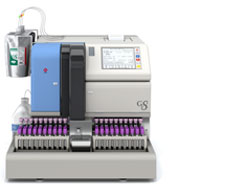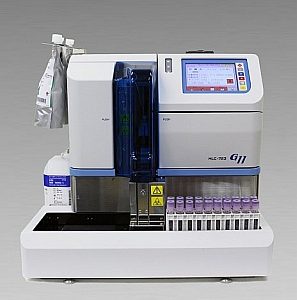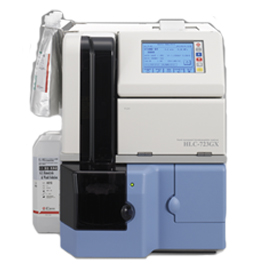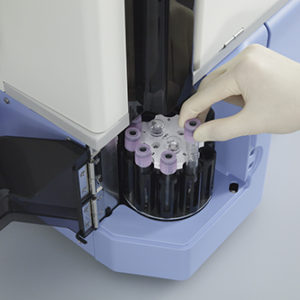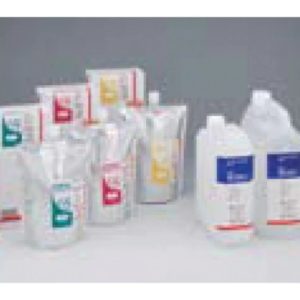High performance liquid chromatography (HPLC)
High Performance Liquid Chromatography (HPLC) is a form of column chromatography that pumps a sample mixture or analyte in a solvent (known as the mobile phase) at high pressure through a column with chromatographic packing material (stationary phase). The sample is carried by a moving carrier gas stream of helium or nitrogen. HPLC has the ability to separate, and identify compounds that are present in any sample that can be dissolved in a liquid in trace concentrations as low as parts per trillion. Because of this versatility, HPLC is used in a variety of industrial and scientific applications, such as pharmaceutical, environmental, forensics, and chemicals.
Sample retention time will vary depending on the interaction between the stationary phase, the molecules being analyzed, and the solvent, or solvents used. As the sample passes through the column it interacts between the two phases at different rate, primarily due to different polarities in the analytes. Analytes that have the least amount of interaction with the stationary phase or the most amount of interaction with the mobile phase will exit the column faster.
Instrumentation:
Main components in an HPLC system include the solvent reservoir, or multiple reservoirs, a high-pressure pump, a column, injector system and the detector.
Detection limit |
Gas recommendation |
Regulator recommendation |
| Purge gas | ||
| ≤ 1 ppm | HiQ Helium 5.0 | BASELINE C106 series |

